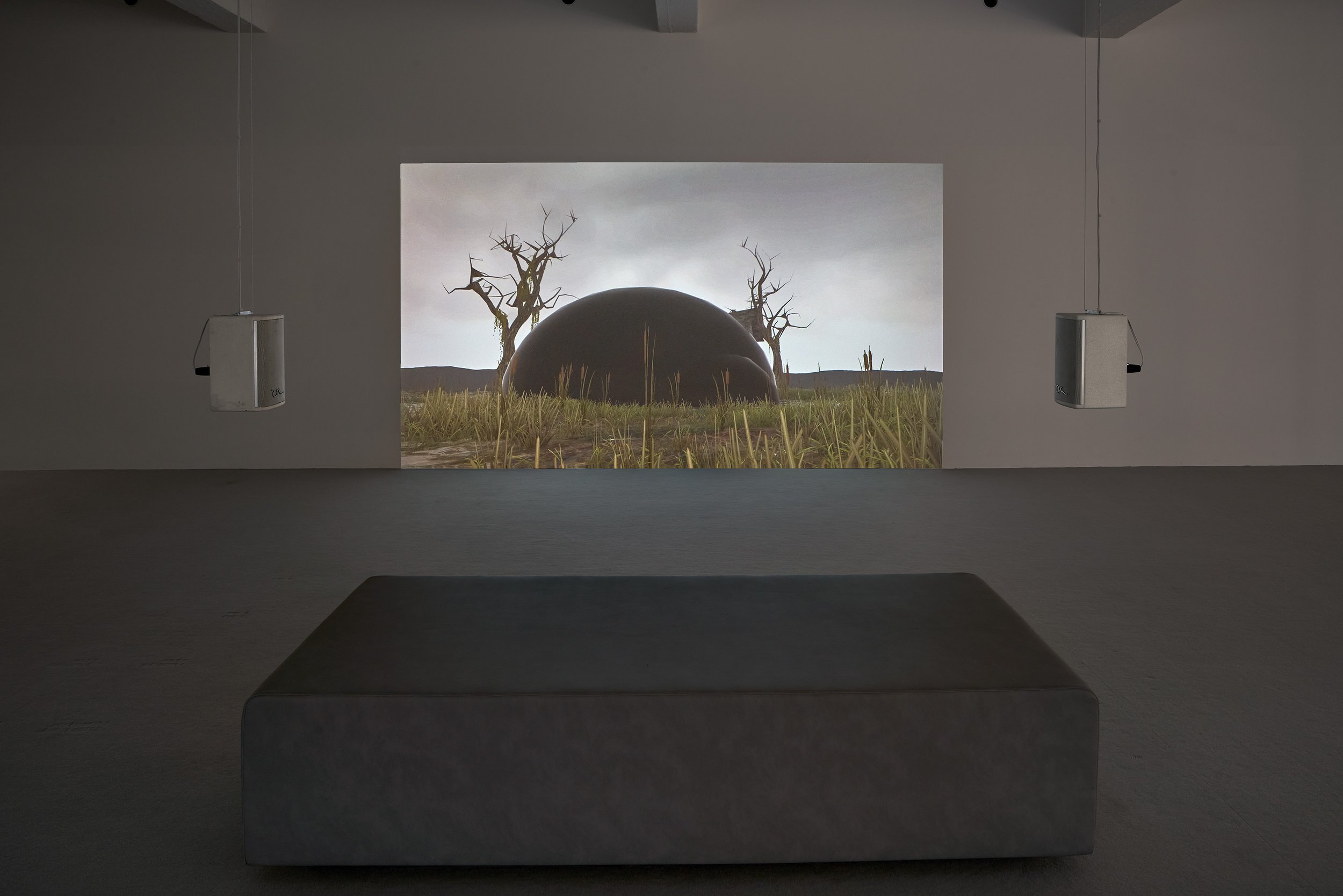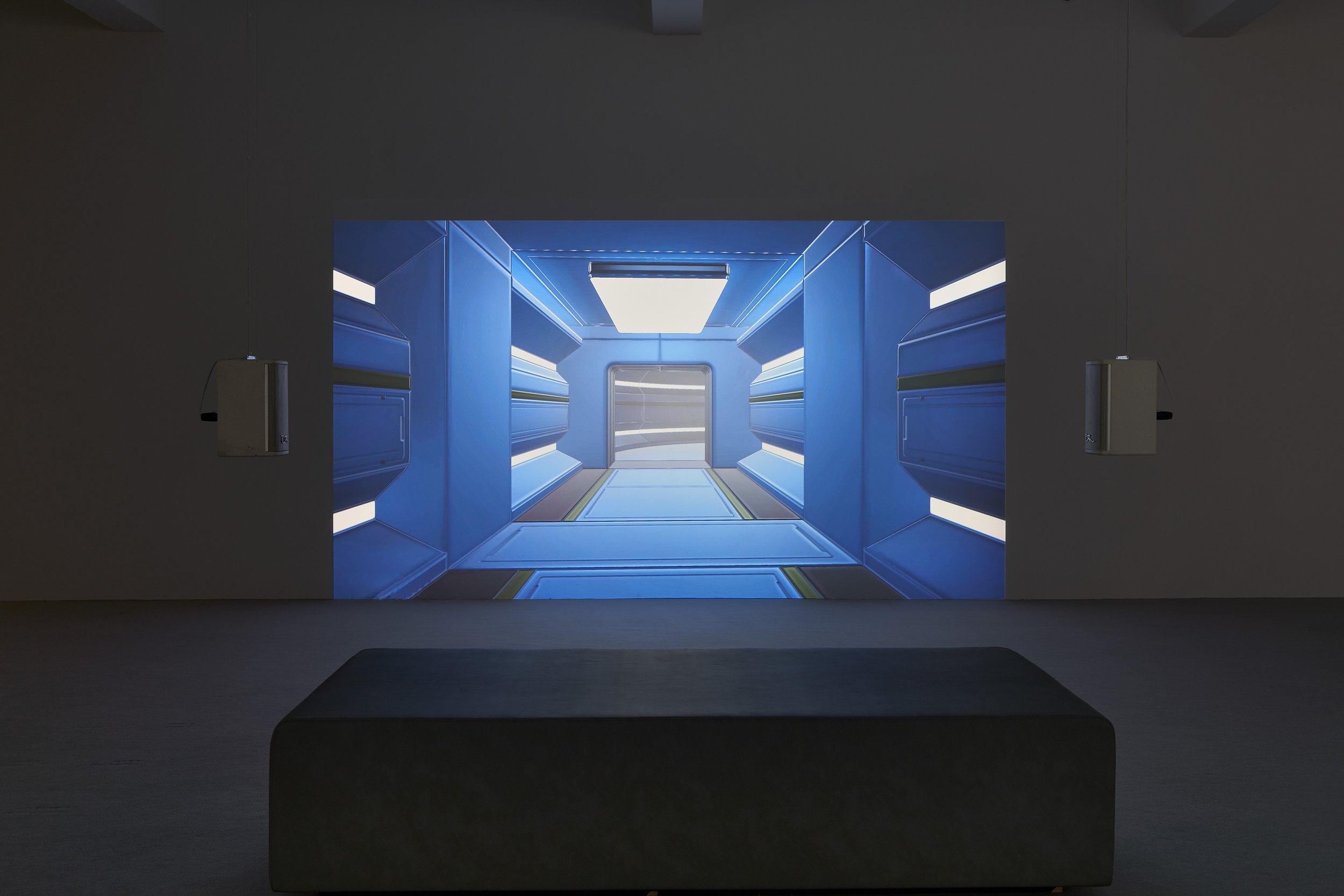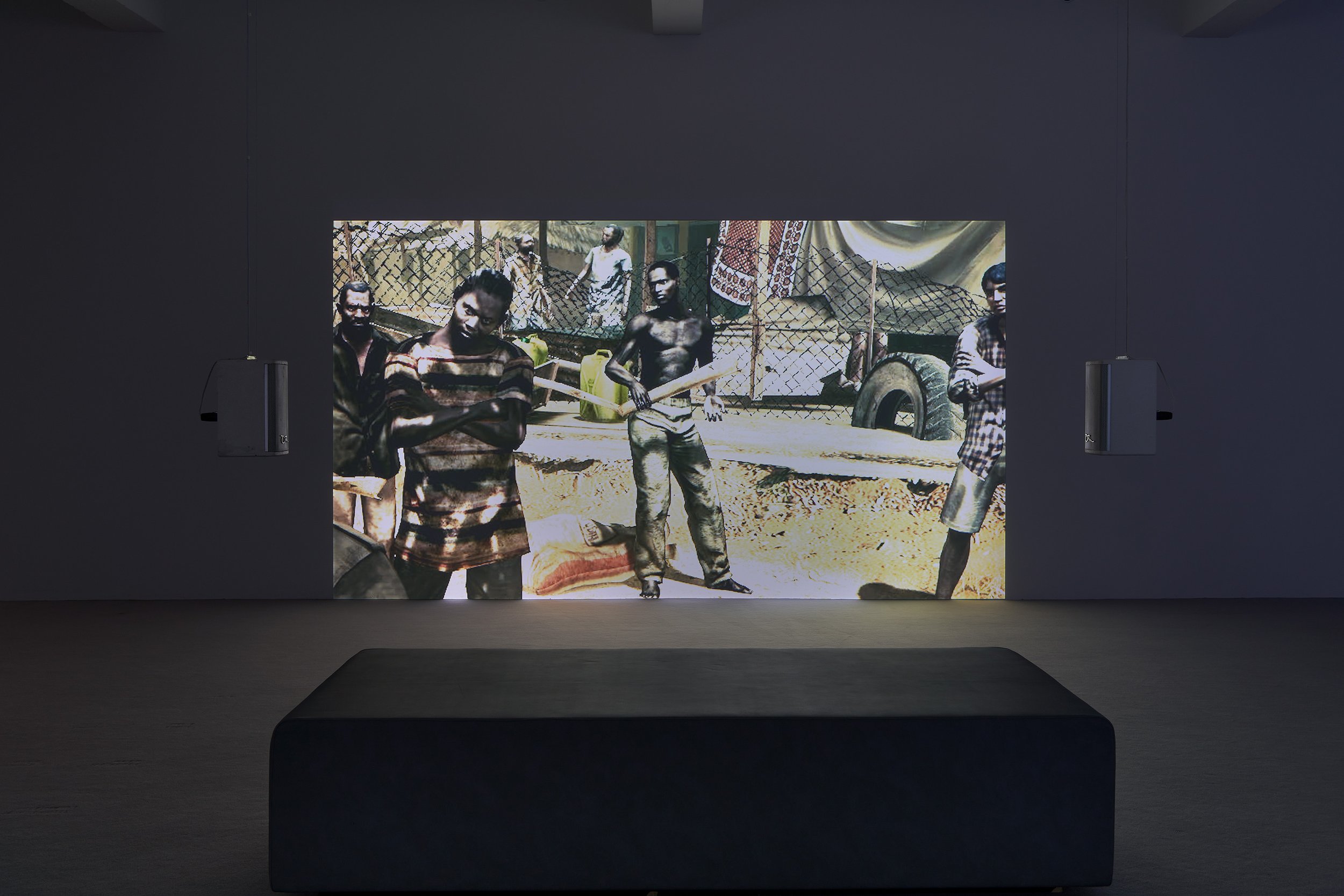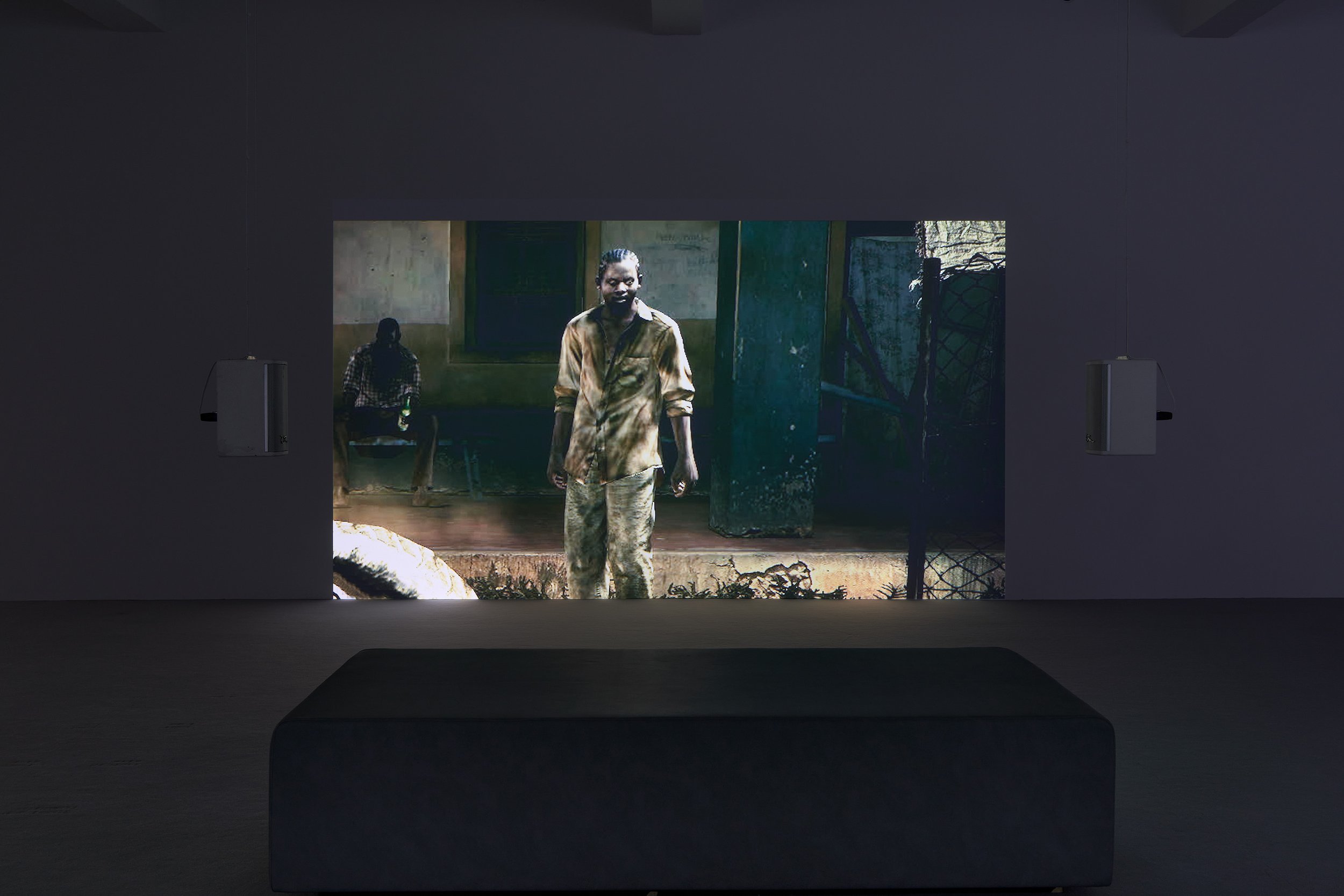Worldbuilding Gaming & Art in the Digital Age
Centre Pompidou-Metz, France
10 June 2023 - January 15 2024
& JSC Düsseldorf, Germany
extended until 4th February 2024
Curated by Hans Ulrich Obrist
Install images of A Lament for Power, Larry Achiampong & David Blandy, 2020
JSC Düsseldorf
Image credit: Alwin Lay
In 2022, 3.03 billion people—more than a third of the world’s population—played video games. As Hans-Ulrich Obrist asserts, this hobby has become “the biggest mass phenomenon of our time. Many people spend hours every day in a parallel world and live a multitude of different lives. Video games are to the twenty-first century what movies were to the twentieth century and novels to the nineteenth century”. Around a hundred years ago, in his book Homo Ludens, the historian Johan Huizinga theorized that play is a basic drive of humankind. Bringing people together in new ways, he contends, play is the source of culture.
More recently, in his book Games: Agency as Art, C. Thi Nguyen argues that games, particularly video games, are a distinct type of art which “let us experience forms of agency we might not have discovered on our own”. As such, gaming has the potential to unleash powerful psychic forces. Video games have proven to be an effective tool for the development of training and strategy. Indeed, scientists have made good use of video games simulating biological systems to speculate on the possible origins and destination of life. Accordingly, video games as a digital art form offer a means for an existential quest beyond the embodied physical world and into the multiverse. By their very nature, they open the potential to imagine and build new worlds.
Several of the featured artists in the exhibit began making work that refers to video games as early as the 1980’s while most of the others were just born around that time. For the works in this show, artists have addressed video games in various ways. Some have adapted their themes and visual style to make videos. Others have modified, hacked, and subverted existing video games. Finally, some have created their own video games. As Hans-Ulrich Obrist writes, “traditionally, video games were created by a small and insular group of people…producing games with a very limited perspective. This is now changing rapidly… Artists are increasingly developing the technical ability to create [their own] virtual worlds of diversity and inclusion”. Through these means, the artists are taking this format beyond pure entertainment value to probe social, political, and aesthetic questions. While video games have been the topic of numerous exhibitions in recent years, most of these highlighted their legitimacy as an artistic medium or focused on aspects of “game art”.
Worldbuilding is the first transgenerational, multinational show of this scope to examine how contemporary artists are appropriating the aesthetics and technology of gaming as their chosen form of expression. In so doing, this exhibit presents a plurality of voices and a multitude of perspectives.
In collaboration with the Julia Stoschek Collection in Düsseldorf.
A Lament for Power, Larry Achiampong & David Blandy, 2020
Commissioned by Art Exchange, Colchester
With works by Peggy Ahwesh, Rebecca Allen, Cory Arcangel, Ed Atkins, Meriem Benanni, Larry Achiampong & David Blandy, Danielle Brathwaite-Shirley, Ian Cheng, Cao Fei, BasmahFelemban, Ed Fornieles, SarahFriend, Kim Heecheon, Institute of Queer Ecology, Rindon Johnson, Keiken, Lawrence Lek, Gabriel Massan, Lual Mayen, Sondra Perry, Jacolby Satterwhite, Frances Stark, Sturtevant, Theo Triantafyllidis, Suzanne Treister, Angela Washko, Lu Yang, among others.





